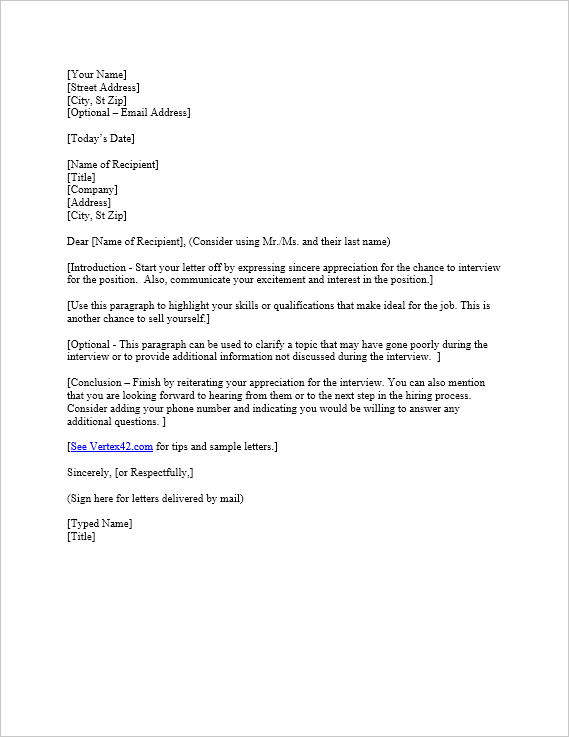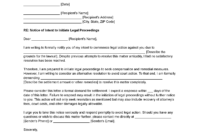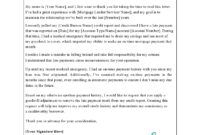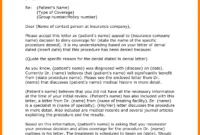You just walked out of an interview, feeling a mix of excitement, relief, and perhaps a touch of anxiety. You’ve presented your best self, answered tough questions, and hopefully made a great impression. But what happens next? The common advice is to wait, but the best strategy involves taking one more proactive step: sending a thoughtful follow-up letter. This isn’t just a courtesy; it’s a crucial part of the job application process that can significantly set you apart from other candidates.
Many job seekers overlook this vital opportunity, or they send a generic, uninspired message. However, a well-crafted follow-up can reinforce your interest, reiterate your qualifications, and even correct any points you felt you didn’t fully explain during the conversation. To make this process straightforward and effective, having a reliable interview follow up letter template at your fingertips is incredibly helpful. It provides a structured starting point, allowing you to focus on personalizing your message and making a lasting positive impact.
Why Your Follow-Up Letter Is a Game Changer
Think of your follow-up letter as your final opportunity to make an impression and solidify your candidacy. It demonstrates professionalism, attention to detail, and genuine enthusiasm for the role, qualities that every employer values. While your resume and interview performance get you through the door, a strong follow-up can often be the tie-breaker, especially in a competitive job market where several candidates might possess similar qualifications. It shows you’re not just looking for any job, but for *this specific job* with *this specific company*.
This letter is your chance to briefly summarize why you’re a perfect fit, connect back to specific points discussed during the interview, and articulate how your skills directly address the company’s needs. Perhaps you learned something new about the role or the team dynamic during the interview that you wish you had highlighted more. The follow-up letter provides a perfect, polite opening to integrate these insights and show that you were actively listening and engaged. It transitions you from an applicant to a potential team member, envisioning yourself in the role.
However, a follow-up letter is only effective if it’s done right. Sending a rushed, error-filled, or overly generic message can actually do more harm than good. It needs to be clear, concise, and most importantly, sincere. Customizing each letter to the specific interviewer and role is paramount. Avoid the temptation to just copy and paste without personalizing, as hiring managers can spot a boilerplate message from a mile away.

An excellent follow-up letter doesn’t just thank the interviewer; it actively reinforces your value. It’s a strategic communication piece that can clarify, elaborate, and keep your application top-of-mind. It’s about leveraging every touchpoint to illustrate your dedication and suitability for the position, pushing your application forward in a meaningful way.
Key Components of an Effective Follow-Up Letter
- A personalized greeting addressing the interviewer by name.
- An immediate expression of gratitude for their time and consideration.
- A clear reiteration of your strong interest in the specific position.
- A concise reference to specific points or topics discussed during the interview, demonstrating active listening and engagement.
- One or two sentences highlighting how your key qualifications directly align with the role’s requirements or the company’s mission.
- A professional closing, restating your enthusiasm and availability for next steps.
- Your contact information.
Crafting Your Message: Timelines and Delivery
Timing is everything when it comes to sending your follow-up letter. The general consensus among hiring professionals is to send it within 24 to 48 hours after your interview. This timeframe is crucial because it’s long enough for you to reflect on the conversation and craft a thoughtful message, but short enough that you’re still fresh in the interviewer’s mind. Sending it too soon might seem rushed, while waiting too long risks being forgotten amidst other candidates or the interviewer moving on to other tasks. Aim for that sweet spot to maximize impact.
When it comes to delivery, email is almost universally preferred in today’s professional landscape. It’s fast, efficient, and ensures your message reaches the interviewer promptly. While a handwritten note can feel personal, it often arrives too late to be truly effective in the decision-making process. If you interviewed with multiple people, send a separate, customized email to each person you spoke with. This shows respect for their individual time and allows you to tailor your message based on the specific points you discussed with them.
The subject line of your email is also a small but important detail. It should be clear and professional, allowing the interviewer to quickly identify the sender and the purpose of the email. Something like “Thank You – [Your Name] – [Job Title]” or “Following Up – [Your Name] – [Position Applied For]” works perfectly. Avoid overly casual or vague subject lines, as they might get overlooked or even sent to spam folders. Keep it concise and to the point.
Before you hit send, meticulously proofread your letter. Even a single typo or grammatical error can undermine your professionalism and attention to detail. Reading your letter aloud can help catch awkward phrasing or mistakes that your eyes might miss. Consider having a trusted friend or colleague review it as well. A flawless follow-up letter reinforces the meticulous and reliable image you want to project, ultimately enhancing your chances of moving forward in the hiring process.
Securing a job offer often comes down to the little things that differentiate one candidate from another. A well-executed follow-up letter is one of those significant “little things” that demonstrates your keen interest, professionalism, and proactive approach. It’s an investment of a few minutes that can yield substantial returns in your job search.
By thoughtfully applying the principles of a strong follow-up letter, you not only reiterate your fit for the role but also leave a lasting, positive impression that can significantly boost your candidacy. Remember, every communication point is an opportunity to showcase your best self and move closer to your next career opportunity.



